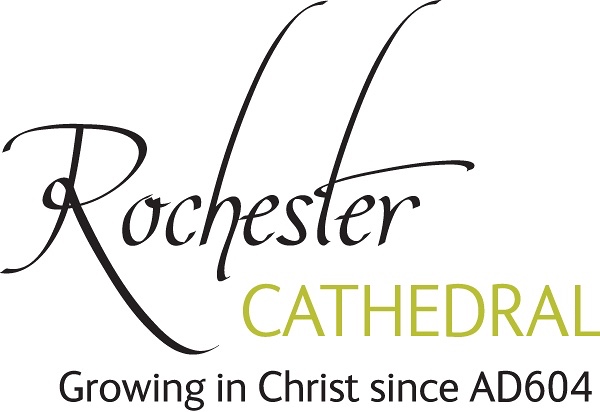Bede's Ecclesiastical History of the English peoples
/Much of the earliest history of the Cathedral and Diocese of Rochester is known from the Ecclesiastical History of the English People by the Venerable Bede c.731, considered one of the most important original references on Anglo-Saxon history.
The British Museum holds a decorated copy dating to in late 8th or early 9th century known as Cotton MS Tiberius C II or the Tiberius Bede. A facsimile of the manuscript is available on the British Museum website and a translation is available on the Project Gutenburg website.
The following is an index of chapters specifically mentioning Rochester or one of its Bishops. The year and rubric of each chapter is provided, with links to the British Museum’s facsimile and the Project Gutenburg translation.
Jacob Scott
Heritage Officer
Book 1
Late Roman Republic to AD 603, covering the invasion by Anglo-Saxon tribes and the Augustine mission.
Chapter 29 [601 CE] How the same Pope [Gregory] sent to Augustine the Pall and a letter, along with several ministers of the Word (facsimile, translation).
Facsimile
Translation
Moreover, the same Pope Gregory, hearing from Bishop Augustine, that the harvest which he had was great and the labourers but few, sent to him, together with his aforesaid envoys, certain fellow labourers and ministers of the Word, of whom the chief and foremost were Mellitus, Justus, Paulinus, and Rufinianus, and by them all things in general that were necessary for the worship and service of the Church, to wit, sacred vessels and altar-cloths, also church-furniture, and vestments for the bishops and clerks, as likewise relics of the holy Apostles and martyrs; besides many manuscripts. He also sent a letter, wherein he signified that he had despatched the pall to him, and at the same time directed how he should constitute bishops in Britain. The letter was in these words: To his most reverend and holy brother and fellow bishop, Augustine; Gregory, the servant of the servants of God. Though it be certain, that the unspeakable rewards of the eternal kingdom are reserved for those who labour for Almighty God, yet it is requisite that we bestow on them the benefit of honours, to the end that they may by this recompense be encouraged the more vigorously to apply themselves to the care of their spiritual work. And, seeing that the new Church of the English is, through the bounty of the Lord, and your labours, brought to the grace of God, we grant you the use of the pall in the same, only for the celebration of the solemn service of the Mass; that so you may ordain twelve bishops in different places, who shall be subject to your jurisdiction.
But the bishop of London shall, for the future, be always consecrated by his own synod, and receive the pall, which is the token of his office, from this holy and Apostolic see, which I, by the grace of God, now serve. But we would have you send to the city of York such a bishop as you shall think fit to ordain; yet so, that if that city, with the places adjoining, shall receive the Word of God, that bishop shall also ordain twelve bishops, and enjoy the honour of a metropolitan; for we design, if we live, by the help of God, to bestow on him also the pall; and yet we would have him to be subject to your authority, my brother; but after your decease, he shall so preside over the bishops he shall have ordained, as to be in no way subject to the jurisdiction of the bishop of London. But for the future let there be this distinction as regards honour between the bishops of the cities of London and York, that he who has been first ordained have the precedence. But let them take counsel and act in concert and with one mind dispose whatsoever is to be done for zeal of Christ; let them judge rightly, and carry out their judgement without dissension. But to you, my brother, shall, by the authority of our God and Lord Jesus Christ, be subject not only those bishops whom you shall ordain, and those that shall be ordained by the bishop of York, but also all the prelates in Britain; to the end that from the words and manner of life of your Holiness they may learn the rule of a right belief and a good life, and fulfilling their office in faith and righteousness, they may, when it shall please the Lord, attain to the kingdom of Heaven. God preserve you in safety, most reverend brother.
Given the 22nd of June, in the nineteenth year of the reign of our most religious lord, Mauritius Tiberius Augustus, the eighteenth year after the consulship of our said lord, and the fourth indiction.
Book 2
Covering 604–633 AD and the christianisation of Kent.
Chapter 3 [604] How St Augustine made Mellitus and Justus bishops; and of his death (translation).
Chapter 4 [616] How, after the death of the kings Ethelbert and Sabert, their successors restored idolatry; for which reason, both Mellitus and Justus departed out of Britain (translation).
Chapter 6 [617-618] How Laurentius, being reproved by the Apostle Peter, converted King Eadbald to Christ; and how the king soon recalled Mellitus and Justus to preach the Word (translation).
Chapter 7 [619] How Bishop Mellitus by prayer quenched a fire in his city (book 2, chapter 7 facsimile, translation).
Chapter 8, 624 How Pope Boniface sent the Pall and a letter to Justus, successor to Mellitus (translation).
Chapter 20, 633 How Edwin being slain, Paulinus returned into Kent, and had the bishopric of Rochester conferred upon him (translation).
Book 3
Covering the years 633–665.
Chapter 14, 644-651 How on the death of Paulinus, Ithamar was made bishop of Rochester in his stead; and of the wonderful humility of King Oswin, who was cruelly slain by Oswy (translation).
Chapter 20, 653 How, when Honorius died, Deusdedit became Archbishop of Canterbury; and of those who were at that time bishops of the East Angles, and of the church of Rochester (book 3, chapter 20 facsimile, translation).
Book 4
Chapter 2, 669 How Theodore visited all places; how the Churches of the English began to be instructed in the study of Holy Scripture, and in the Catholic truth; and how Putta was made bishop of the Church of Rochester in the room of Damianus (translation)
Chapter 12, 673-681 How Haedde succeeded Leutherius in the bishopric of the West Saxons; how Cuichelm succeeded Putta in the bishopric of the church of Rochester, and was himself succeeded by Gebmund; and who were then bishops of the Northumbrians (translation).
Book 5
Chapter 8, 690 How, when Archbishop Theodore died, Bertwald succeeded him as archbishop, and, among many others whom he ordained, he made the learned Tobias bishop of the church of Rochester (book 5, chapter 8 facsimile, translation).
Chapter 23, 725-731 Of the present state of the English nation, or of all Britain (translation).



